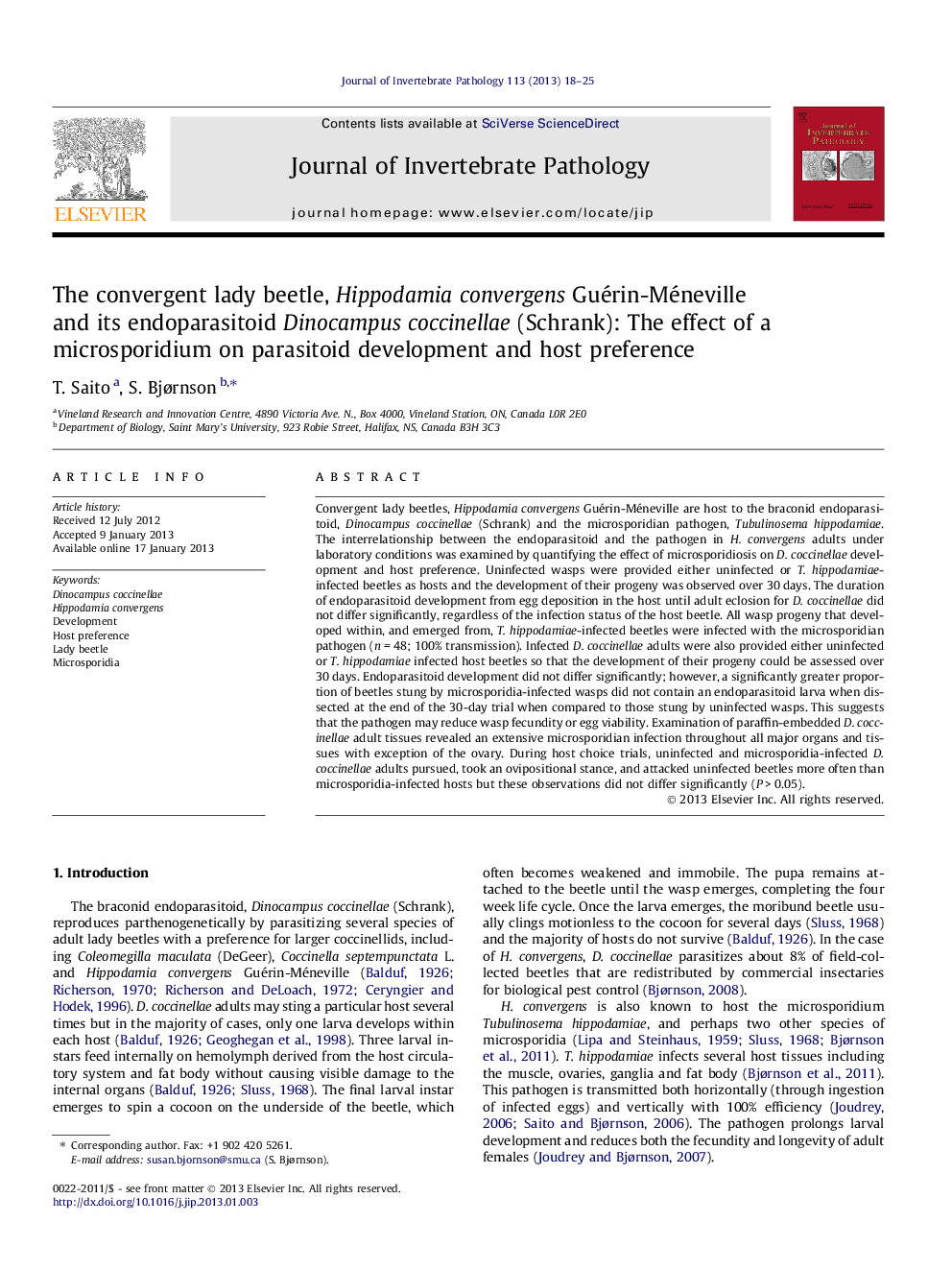| Article ID | Journal | Published Year | Pages | File Type |
|---|---|---|---|---|
| 4557828 | Journal of Invertebrate Pathology | 2013 | 8 Pages |
Convergent lady beetles, Hippodamia convergens Guérin-Méneville are host to the braconid endoparasitoid, Dinocampus coccinellae (Schrank) and the microsporidian pathogen, Tubulinosema hippodamiae. The interrelationship between the endoparasitoid and the pathogen in H. convergens adults under laboratory conditions was examined by quantifying the effect of microsporidiosis on D. coccinellae development and host preference. Uninfected wasps were provided either uninfected or T. hippodamiae-infected beetles as hosts and the development of their progeny was observed over 30 days. The duration of endoparasitoid development from egg deposition in the host until adult eclosion for D. coccinellae did not differ significantly, regardless of the infection status of the host beetle. All wasp progeny that developed within, and emerged from, T. hippodamiae-infected beetles were infected with the microsporidian pathogen (n = 48; 100% transmission). Infected D. coccinellae adults were also provided either uninfected or T. hippodamiae infected host beetles so that the development of their progeny could be assessed over 30 days. Endoparasitoid development did not differ significantly; however, a significantly greater proportion of beetles stung by microsporidia-infected wasps did not contain an endoparasitoid larva when dissected at the end of the 30-day trial when compared to those stung by uninfected wasps. This suggests that the pathogen may reduce wasp fecundity or egg viability. Examination of paraffin-embedded D. coccinellae adult tissues revealed an extensive microsporidian infection throughout all major organs and tissues with exception of the ovary. During host choice trials, uninfected and microsporidia-infected D. coccinellae adults pursued, took an ovipositional stance, and attacked uninfected beetles more often than microsporidia-infected hosts but these observations did not differ significantly (P > 0.05).
Graphical abstractFigure optionsDownload full-size imageDownload as PowerPoint slideHighlights► D. coccinellae development did not differ in uninfected and infected hosts. ► Pathogen transmission from infected beetle to newly-emerged wasp was 100%. ► Microsporidia infect all D. coccinellae organs and tissues except the ovary. ► Pathogen transmission from parasitoid to host did not occur. ► D. coccinellae adults did not prefer healthy hosts over infected ones.
